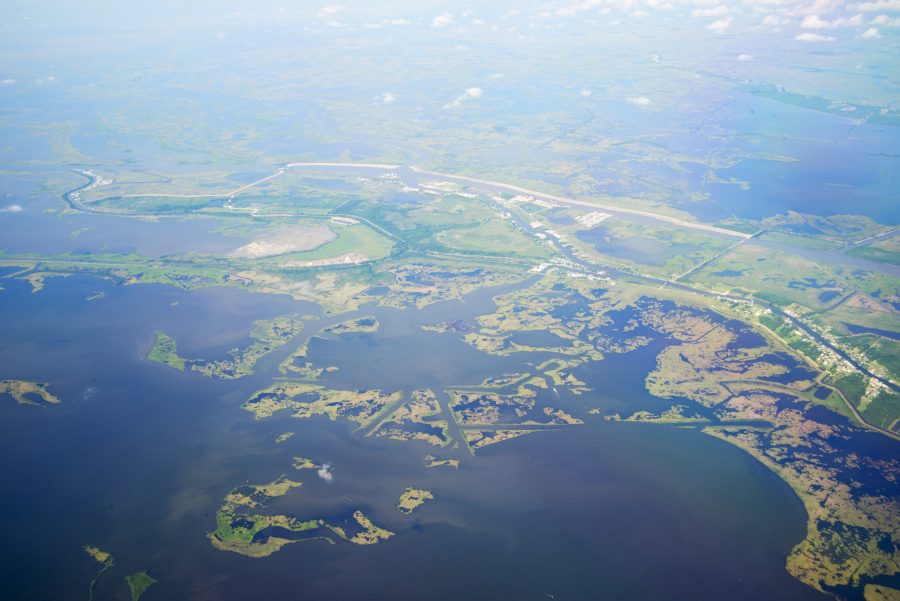In an effort to increase political will and attract national attention to perhaps one of the most urgent environmental issues in U.S. history, Louisiana Gov. John Bel Edwards declared a state of emergency due to the state’s rapidly dissipating coastline last week.
Not coincidentally, Gov. Edwards delivered his declaration in the same week that Louisiana’s Coastal Protection and Restoration Authority approved a rewrite of a 50-year master plan to counteract the state’s receding coast. The updated 50-year
Although Louisiana’s vanishing coastland has only come to demand its share of the nation’s spotlight in recent years, the issue has plagued the state since the 1930s, when levees were built by the U.S. Army Corps of Engineers to restrain the Mississippi River and oil companies started dredging thousands of miles of canals into the land around the Mississippi River Delta. Since then, over 2,000 square miles of Louisiana marshland has been claimed by the ocean due to various factors, including sea level rise.
With Louisiana’s potential plan to combat coastal loss primarily centered around restoration projects, the research of scientists like Julia Cherry is poised to become extremely valuable to their efforts. Cherry, an associate professor in both the Department of Biological Sciences and New College at the University, conducts research that is aimed at understanding the various mechanisms influencing the structure and function of wetland ecosystems. Cherry has performed research on marshland at several locations around New Orleans.
“At all of those sites we’ve been trying to understand the physical and biological processes that help these marshes maintain their elevations over time,” Cherry said. “Right now, the focus of our project is looking at how changes in sediment addition alter this. Whether it’s
From her extensive knowledge of wetland ecosystems and her years of experience conducting research on them, Cherry has come to understand how valuable marshes are to the state of Louisiana and to the country.
“Coastal wetlands, including the marshes of Louisiana, provide a number of what we call ecosystem
To Jon
“The environmental science field, even with the new administration, most likely will continue to grow,” Kressuk said. “While the government may slow down hiring, the private sector is going to be a huge area of growth and opportunity.”
Even as Louisiana’s coast vanishes at a rate of about a football field worth of land every 45 minutes, according to Cherry, there is hope for the future. She believes that recent actions taken by lawmakers suggest that the state is on the right path.
“I think this is an important step in raising awareness about how severe the problem is there,” Cherry said. “…This step of declaring the state of emergency heightens the awareness and may serve to increase political will and raise









